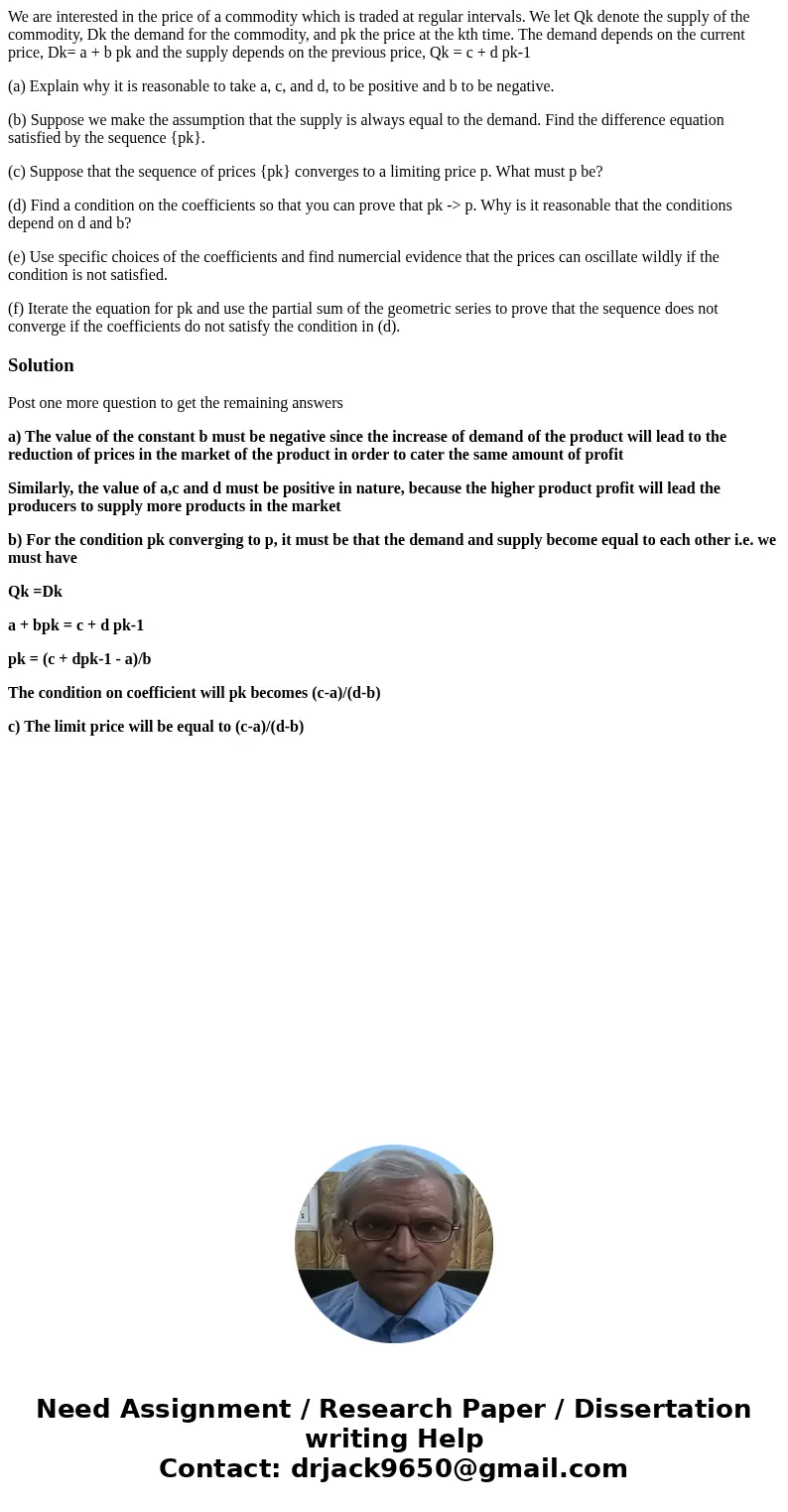We are interested in the price of a commodity which is trade
We are interested in the price of a commodity which is traded at regular intervals. We let Qk denote the supply of the commodity, Dk the demand for the commodity, and pk the price at the kth time. The demand depends on the current price, Dk= a + b pk and the supply depends on the previous price, Qk = c + d pk-1
(a) Explain why it is reasonable to take a, c, and d, to be positive and b to be negative.
(b) Suppose we make the assumption that the supply is always equal to the demand. Find the difference equation satisfied by the sequence {pk}.
(c) Suppose that the sequence of prices {pk} converges to a limiting price p. What must p be?
(d) Find a condition on the coefficients so that you can prove that pk -> p. Why is it reasonable that the conditions depend on d and b?
(e) Use specific choices of the coefficients and find numercial evidence that the prices can oscillate wildly if the condition is not satisfied.
(f) Iterate the equation for pk and use the partial sum of the geometric series to prove that the sequence does not converge if the coefficients do not satisfy the condition in (d).
Solution
Post one more question to get the remaining answers
a) The value of the constant b must be negative since the increase of demand of the product will lead to the reduction of prices in the market of the product in order to cater the same amount of profit
Similarly, the value of a,c and d must be positive in nature, because the higher product profit will lead the producers to supply more products in the market
b) For the condition pk converging to p, it must be that the demand and supply become equal to each other i.e. we must have
Qk =Dk
a + bpk = c + d pk-1
pk = (c + dpk-1 - a)/b
The condition on coefficient will pk becomes (c-a)/(d-b)
c) The limit price will be equal to (c-a)/(d-b)

 Homework Sourse
Homework Sourse